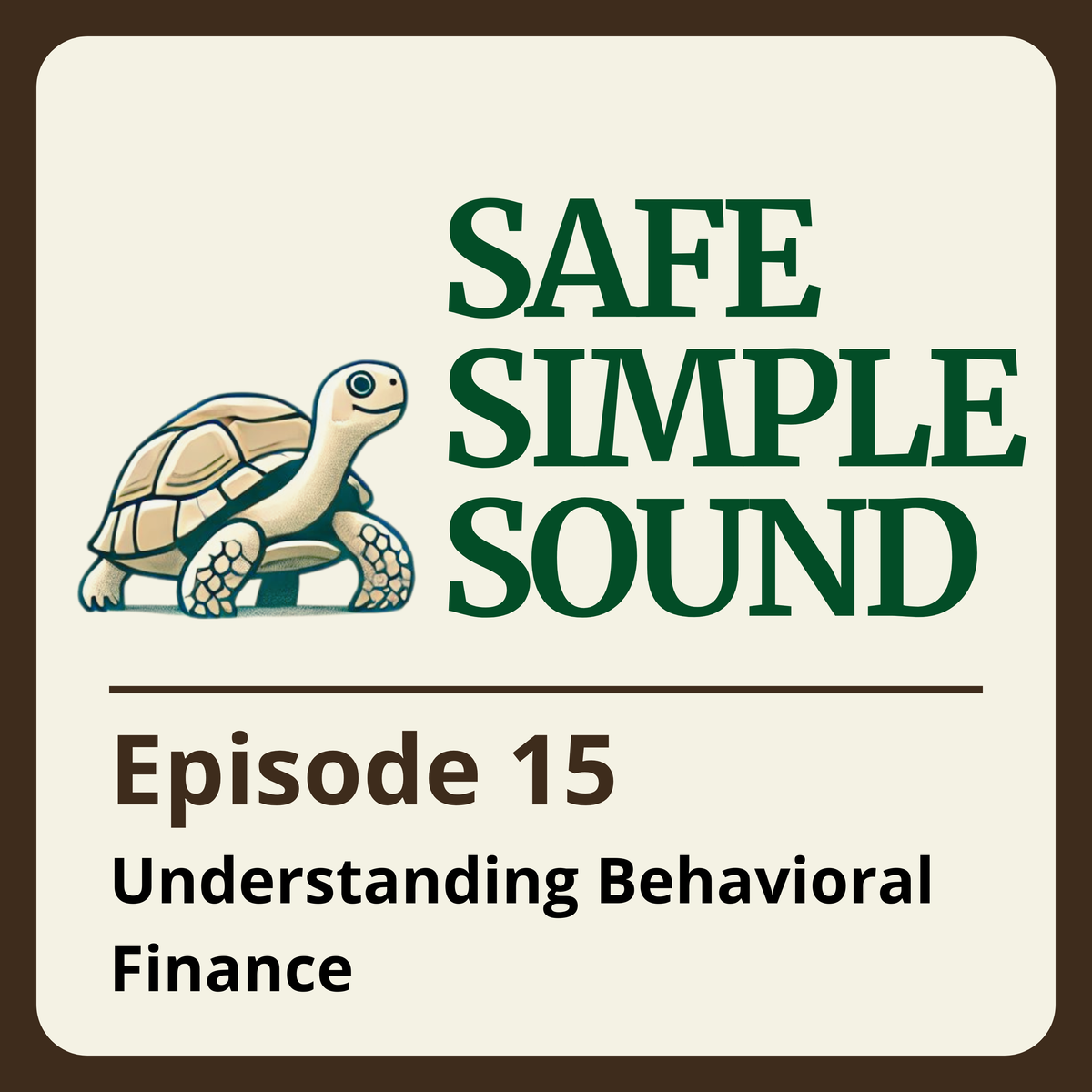Podcast Episode 15

YouTube
Spotify
The intersection of psychology and finance reveals fascinating insights into how we make financial decisions. In this episode of Safe Simple Sound, we explore the complex world of behavioral finance and uncover practical strategies for making better financial choices.
The Two Systems of Financial Decision-Making 💭
At the heart of behavioral finance lies Kahneman and Tversky's concept of two distinct thinking systems. System One operates on intuition and emotion, responding quickly to market changes and financial pressures. System Two, however, engages in careful analysis and logical reasoning. Understanding these systems helps explain why we sometimes make impulsive financial decisions that don't align with our long-term goals.
Consider this scenario: You check your investment portfolio during a market dip. System One might trigger an immediate panic response, urging you to sell everything to avoid further losses. Meanwhile, System Two would analyze historical market patterns, evaluate your long-term strategy, and likely advise staying the course.
The Power of Loss Aversion 📉
One of the most significant discoveries in behavioral finance is that losses impact us psychologically about twice as much as equivalent gains. This "loss aversion" explains many common investment mistakes, such as:
The tendency to hold onto losing investments too long, hoping to break even Selling winning investments too early to lock in gains Avoiding beneficial risks due to fear of potential losses
Understanding loss aversion helps us recognize when emotions might be clouding our judgment, allowing us to make more balanced decisions.
Social Influence and Financial Decisions 🤝
In today's interconnected world, social media and peer pressure significantly influence our financial choices. The episode explores how comparing our financial situation to others, especially through social media, can lead to poor decision-making. FOMO (Fear of Missing Out) in investing often results from this social influence, pushing people into trendy investments without proper analysis.
Practical Strategies for Better Financial Decisions ✅
To combat these behavioral biases, consider implementing these approaches:
Create a structured decision-making framework before making investment choices Establish clear investment criteria and stick to them during market volatility Regular portfolio reviews focused on your personal goals rather than market noise Practice self-awareness to recognize when emotions are driving decisions
The Role of Awareness in Financial Success 💡
Perhaps the most valuable insight from behavioral finance is that awareness of our biases doesn't eliminate them – but it does help us manage them better. By understanding the emotional factors that influence our financial decisions, we can develop strategies to engage our analytical thinking when it matters most.
Moving Forward with Financial Psychology 🎯
The journey to better financial decision-making starts with accepting our emotional nature while building systems to manage it effectively. Remember that everyone faces these challenges – the key is developing strategies that work with our psychology rather than against it.
Ready to improve your financial decision-making? Visit SafeSimpleSound.com/podcast-episode-15 for additional resources and tools to help you navigate your financial journey more effectively.
